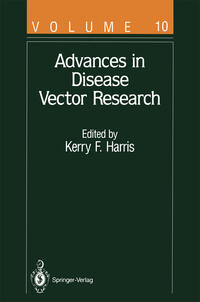
Volume 10 of Advances in Disease Vector Research consists of seven chapters on vectors that affect human or animal health and six chapters on plant pathogens and their vectors. In Chapter 1, Yasuo Chinzei and DeMar Taylor discuss hormonal regulation of vitellogenesis in ticks. Many blood sucking insects and ticks transmit pathogens by engorgement, which induces vitellogenesis and oviposition in adult animals. To investigate the pathogen transmission mechanism in vector animals, information on the host physiological and endocrinological conditions after engorgement is useful and important because pathogen development or proliferation occurs in the vector hosts at the same time as the host reproduction. Chinzei and Taylor have shown that in ticks, juvenile hormone (JH) is not involved in the endocrinological processes inducing vitellogenin biosynthesis. Synganglion (tick brain) factor(s) (vitellogenesis inducing factor, VIF) is more important to initiate vitellogenesis after engorgement, and ecdysteroids are also related to induction of vitellogenin synthesis. In their chapter, based mainly on their own experimental data, the authors discuss the characterization of main yolk protein, vitellogenin (Vg) , biosynthesis and processing in the fat body, and hormonal regulation of Vg synthesis in tick systems, including ixodid and argasid ticks.